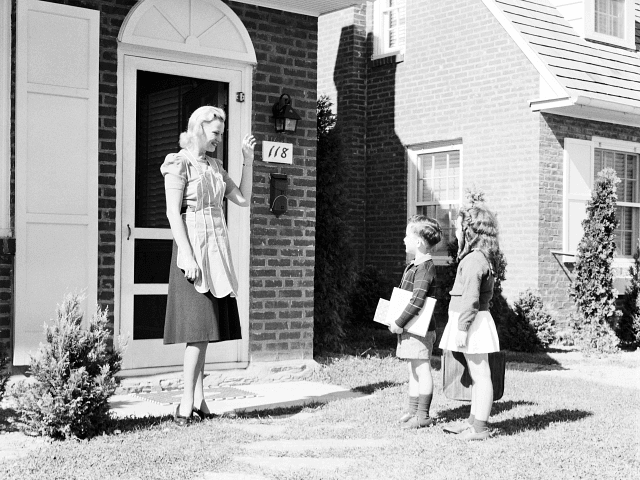The era of the single breadwinner able to support his household on a family wage appears to be truly over in Britain, with Office for National Statistics (ONS) figures indicating that over 75 per cent of mothers now have to work.
“The number of mothers in the labour market has grown substantially over the last 20 years,” the ONS bulletin explains, with the number of women with dependent children in the workplace from an already high 66.2 per cent in 2000 to 75.1 per cent by April to June 2019.
“In 2019, three-quarters of mothers with dependent children were in work, up from two-thirds of mothers at the start of the century,” confirmed Tim Vizard, of the Office for National Statistics Policy Evidence and Analysis Team, in the statistician’s comment accompanying the report.
Fewer than three in ten (28.5 per cent) of mothers chose even to reduce their working hours after having children — although it seems likely that many more of them felt such a choice was not open to them for financial reasons.
Full-time motherhood may have collapsed partly because it is strongly disincentivised in the British tax system. Stay-at-home mums cannot transfer their income tax-free personal allowance to their partner, and the only state support they receive is a limited amount of free or subsidised childcare, standard child benefit payments for their first two children, and National Insurance credits until their youngest child turns 12.
(Britons need 35 full years of National Insurance credits to receive the maximum state pension of £168.60 per week once they reach the state pension age, currently 66.)
Working mothers, on the other hand, can be rewarded for their lifestyle with tax credits on top of their pesrsonal allowance and child benefit payments, and many more hours of free or subsidised childcare.
The British approach contrasts strongly with that of more traditionally conservative governments in countries like Hungary and Poland, which are actively promoting motherhood — in large part to arrest the collapsing birth rates which other Western countries are trying to tackle through mass immigration — through support measures including special home and family car loans and maternal pensions to show “gratitude and respect” to “mothers and grandmothers who have devoted their lives to bringing up children”.
“Europe is at a crossroads. Western Europe seeks to address the problem of demography with simple solutions which only offer short-term success, but convey catastrophic consequences in the long run,” a spokesman for the Hungarian government told Breitbart London in June 2019.
“Hungary has a long-term approach and opts for the more difficult path… [encouraging] births by placing the interests of families in the focus of politics, [rather than] ever further flows of migration.”
Follow Jack Montgomery on Twitter: @JackBMontgomery
Follow Breitbart London on Facebook: Breitbart London

COMMENTS
Please let us know if you're having issues with commenting.